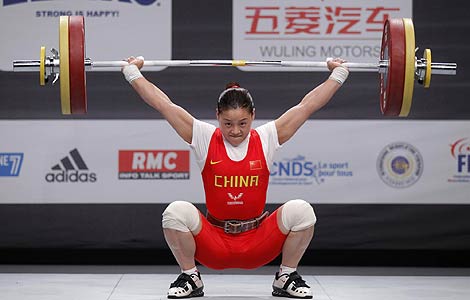Slight tweaks not a reversal
Updated: 2011-11-08 08:01
By Yi Xianrong (China Daily)
|
|||||||||
Small adjustments in macroeconomic policy are likely to meet policy goals in face of changing economic circumstances
There has been increasing speculation over whether there will be a "loosening" of the country's macroeconomic policy following the recent remark by Premier Wen Jiabao that China is gearing up for some "slight, moderate and well-timed" adjustments to its macro regulations.
Domestic stock markets rose for four consecutive trading days on this speculation and the benchmark Shanghai Composite Index reached a new two-month high at the close of session on Friday. Many analysts have also predicted that the October consumer price index (CPI), to be published by the National Bureau of Statistics on Wednesday, is likely to be below 5.4 percent, bolstering expectations among investors that the central bank will adopt a loose monetary policy.
Some domestic media have interpreted Wen's comment to mean the country's monetary policy will not change, but its rhythms will be moderately adjusted. In other words, a "targeted relaxation" will be embraced. Such an interpretation seems to have been backed by the recent increase in lending issued by four major commercial banks.
But in my view, the "slight adjustments" do not mean the country will inevitably increase its bank credit volumes, but that the country will employ a market-based pricing mechanism to ease the emerging fund crunches in the domestic market.
Whether or not China will fundamentally reverse its macro regulations will be mainly decided by the latest developments in economic circumstances at home and abroad and by the country's own macroeconomic policy goals. Despite a weakened economic growth momentum in the United States and European countries, China's economy is still expected to maintain a 9-percent growth rate this year and next year. Such a figure is still a little higher than the annual 8-percent target set by the Chinese government for both years. Thus the situation does not support a fundamental reversal of the national macroeconomic policy.
The CPI will be an important measurement to decide whether or not the country should fundamentally change its current macroeconomic policy. It is widely expected by the market that the October CPI is likely to decline from the 6.1 percent in September, partly as the result of the priority given by the government to stabilizing prices since the onset of this year. But such a fall, if it materializes, is a result of the statistical "base effect" rather than a halting of the price hikes. Even a 5.4-percent CPI growth rate is much higher than the 4-percent growth targeted by the central government for the full year. So at a time when domestic deposits still have a negative real interest rate, there is not much possibility of the country loosening its monetary policy.
From an international perspective, whether the prices of world's bulk commodities will maintain a steady decline also remains in doubt. The US economy is on the way to a nascent recovery, but it obviously lacks robust vitality. Under these circumstances, it remains unclear whether the US Federal Reserve Board will adopt a new round of quantitative easing, a policy that would once again result in the weakening of the US dollar and push up the prices of bulk commodities.
More importantly, domestic property prices have not substantially fallen despite the fact that the rapid rising momentum has been generally curbed and speculation checked. The government still faces an uphill task if it wants to fulfill its commitment to bring property prices down to a reasonable level. A tightened macroeconomic policy is needed to help realize this goal.
Thus, to implement "slight adjustments" to the national macroeconomic policies, the country will likely embrace a more market-based interest rate approach to change the unreasonable distribution of domestic liquidity. For example, the country is likely to lower the current reserve requirements on domestic commercial banks and raise interest rates for deposits as leverage to influence the flow of banking credit to different fields. In so doing, the country is expected to obtain its policy target of stabilizing prices and ensure the effective and healthy operation of bank lending.
The author is a researcher with the Institute of Finance and Banking under the Chinese Academy of Social Sciences.
(China Daily 11/08/2011 page8)











